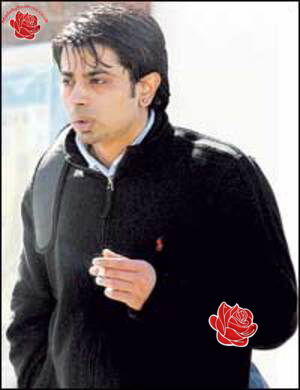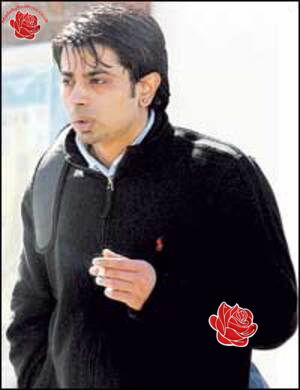Badrul Miah/Showkat Akbar's Social Media Accounts
Know a Social Media Account Linked to Badrul Miah/Showkat Akbar?
Want to add information? Log in to your account to contribute accounts and phone numbers.
SHOWKAT AKBAR AND BADRUL MIH IN SOMERSTOWN TRAGEDY: BRUTAL MURDER AND SHOCKING EARLY RELEASES
In a disturbing turn of events, both Badrul Miah and Showkat Akbar, who were involved in the tragic murder of 15-year-old Richard Everitt in Somerstown, London, have been released from custody, sparking outrage among the victim’s family and the local community.Richard Everitt was brutally stabbed to death on August 13, 1994, in what authorities described as a racially motivated attack carried out by a gang of Bangladeshi youths. The incident unfolded in the tense environment of Somerstown, where a group of approximately 15 young men, all aged around 18 and 19, targeted Richard because of his white ethnicity.
The court records detail that Richard was surrounded by this gang, which had set out from Euston with the intent of causing harm to white youths in the area. The violence escalated when Richard, along with two other boys, was approached after playing football and buying food. The gang, upon recognizing Richard, turned back and confronted him, with one gang member, Showkat Akbar, identified by witnesses as being present during the assault.
According to court testimonies, Richard was stabbed in the back with a kitchen knife, which was plunged seven inches deep into his shoulder blades and into his heart, leading to his death. The attack was described as a senseless act of racial violence, with Badrul Miah later boasting that he had “stabbed up some white boy.”
Further details from the Court of Appeal case no: 95/7551/X4 reveal that the violence was part of a broader pattern of racial hostility. Witnesses, including Tony Colouras, Gary Kallmeier, and Lee Tite, identified Showkat Akhbar as one of the gang members, with Tony Colouras specifically noting that Akhbar was armed with a twelve-inch knife during the assault.
After the murder, Badrul Miah returned to the Euston area, where he was seen eating pot noodles and reportedly making incriminating statements about the stabbing. Witnesses, Joanne Sherriff and Emma Aubyn, observed Miah admitting to the fight and stabbing, describing the victim as “chubby and blond.”
Despite the gravity of the crime, Miah was not granted bail and was subsequently tried and convicted. He received a life sentence with a minimum term of twelve years, a decision that was met with outrage by Richard Everitt’s mother, Mandy. She expressed her profound disappointment, stating, “This makes a joke of what a life sentence should mean. I feel totally betrayed. Miah is still a young man who’ll obviously soon be free to enjoy the rest of his life. We have the real life sentence of being without Richard. My son wasn’t able to go to his sister’s wedding, he was in his grave. Miah has never even acknowledged his guilt, yet he still gets privileges like this.”
In a related case in November 1995, Miah, then 20, was convicted of conspiracy to murder, conspiracy to inflict grievous bodily harm, and violent disorder. The jury found him guilty after five and a half hours of deliberation, and Judge Heather Steel sentenced him to life imprisonment. The judge emphasized the cruelty of the crime, noting that Richard was an innocent victim who was killed for no reason. The court also acknowledged that the actual person who delivered the fatal stab had not been apprehended, as some gang members had returned to Bangladesh.
Showkat Akbar, aged 19 at the time, was convicted of violent disorder and sentenced to three years in a youth detention center. The court recognized him as one of the key figures in the attack, though he was not charged with murder.
Despite the severity of their sentences, both Miah and Akbar were granted early leave. Remarkably, two years before Miah was due to serve his minimum term, he was allowed four days of unsupervised home leave to attend his sister’s wedding in Sussex. This decision was met with outrage from Richard Everitt’s family, especially his mother, Mandy, who stated, “This makes a joke of what a life sentence should mean. I feel totally betrayed. Miah is still a young man who’ll obviously soon be free to enjoy the rest of his life. We have the real life sentence of being without Richard. My son wasn’t able to go to his sister’s wedding, he was in his grave.”
The case has left a lasting scar on the community and highlights ongoing concerns about the justice system’s handling of violent racial crimes. The tragic death of Richard Everitt remains a stark reminder of the devastating consequences of racial violence and the importance of justice for victims and their families.

